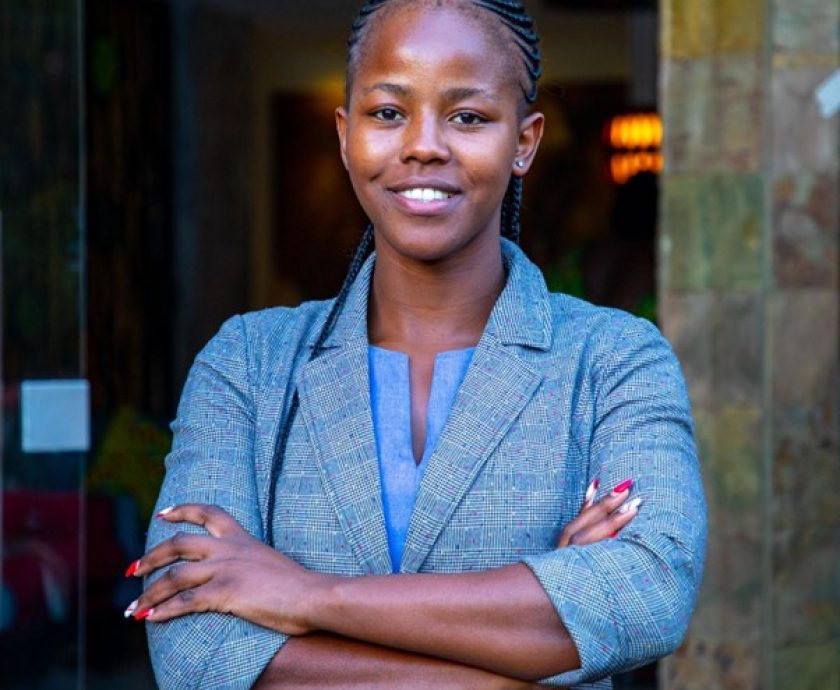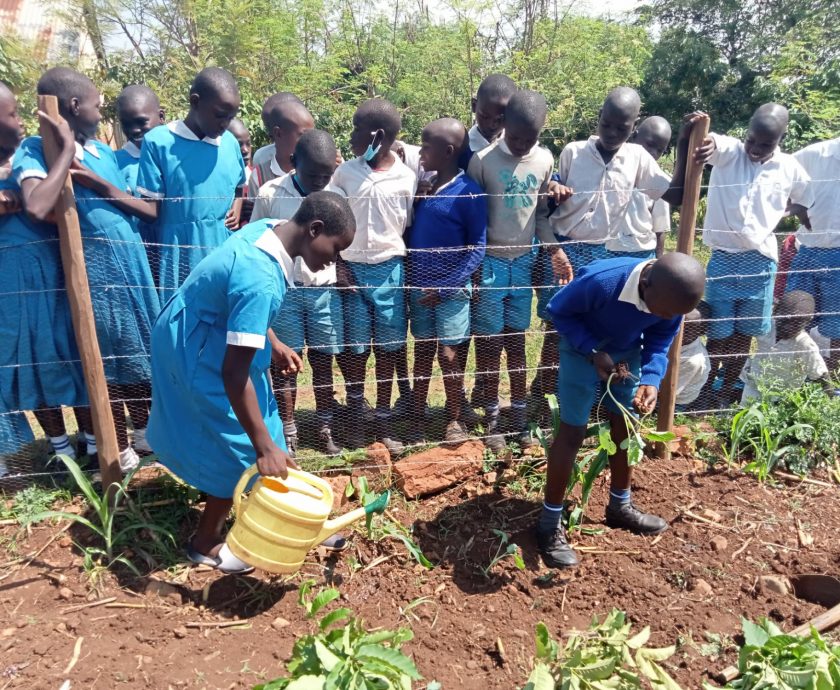By Odhiambo Orlale
Scores of women leaders from Nairobi’s informal settlements and outlying areas had an opportunity to share their views and experiences during the 6th Urban Thinkers Campus held in Nairobi with the theme on Global Warming and Global Justice.
The over 70 women from the grassroots spoke at the Urban Thinkers Campus 2021 organised by Polycom Development, a Kibera-based Non-Governmental Organisation, held at Rowallan Scout’s Camp in Nairobi, which coincided with the Global Climate Change forum in Glasgow, Scotland.
The Wamama Tunauwezo (Women We can do it) forum was opened by Jane Anyango, the founder and director of Polycom, a gender-focused organization.
The women leaders spoke their hearts out about the adverse effects of global warming on their day to day life and came up with practical solutions and recommendations on how the County and national governments could intervene and address the issues they had raised.
Martha from Kiambiu slums, cited the perennial floods that sweep through their densely populated informal settlements whenever there is heavy rain up stream leaving a trail of destruction, injuries and even deaths.
According to Mary Elias, the floods have everything to do with deforestation, pollution and environmental degradation along Nairobi River by the city residents, industrialists and traders.
Said Elias: “We are also affected by global warming whenever we suffer from house fires which destroy our shacks, leave us homeless and leads to conflicts and gender based violence which affects women and girls the most.”
Another speaker, Nereah Acham from Korogocho slums revived the controversial debate on the Dandora dumpsite saying despite their protests and County government pledge to relocate it, nothing much has happened.
Meanwhile, the stench and water pollution affect the residents, many of whom have suffered from water-borne diseases and respiratory diseases and ailments.
Said Acham: “The entire area is unsafe and unhealthy. The river that flows by is always contaminated with industrial effluence, human waste and garbage while the fumes from the burning mountains of garbage are a big eyesore and pose a serious health hazard. In fact, the whole filthy place is a time bomb waiting to explode anytime into a major pandemic, worse than Covid-19!”
On her part, Hellen from Mukuru Kwa Njenga slums also blamed Nairobi Metropolitan Services, who are in charge of the city’s environment, for sleeping on the job.
The informal settlement is near Mama Lucy Kibaki Hospital, run by the Nairobi County Government and the NMS, and she says garbage from there such as used syringes, sanitary pads and other surgical paraphernalia are dumped carelessly exposing the public to diseases.
Says Hellen: “When the rains come, it ends up sweeping away our houses, toilets and even furniture leading to conflicts and rise in Sexual and Gender Based Violence (SGBV) and cases of teenage pregnancies. We have always complained but nothing is ever done about it by the authorities and our elected leaders.”
From Kibera slums, Judith Shitabule, says they have been mapping out what happening in the biggest slum in the country and have concluded that there is a link between global warming and issues around menstruation hygiene affected by the chronic water shortage, sub-standard public toilets and washrooms among others.
Says Shitabule: “When you hear us speak, please take us seriously. Most of our problems start with poverty and have also led to rise in sex exploitation where women and girls are abused. Several cases of boda-boda (motorbike) operators have been reported of sexual harassment and abuse of schoolgirls.”
In a move to address effects of climate change, Malasen Hamida from Mazingira Women’s Initiative, disclosed that they had formed environmental groups and promoted the starting of tree seedlings projects, focusing on fruit trees, and planting in various schools in the informal settlements.
The Kibera women groups are appealing to the area Member of Parliament, Imran Okoth, to support the building of incinerators to reduce the garbage challenges of transporting across town to the Dandora dump site.
Earlier, Ann Wanjiru from Mathare slums was glad that their voices under Mama Tunauwezo Group is now being heard locally and even at the county level on issues of environment, regular clean ups and promoting entrepreneurship among members.
Says Wanjiru: “I was born and raised in Mathare and so I know what I am talking about how climate change and climate justice issues are affecting us. We had a successful grassroots women’s assembly, but was affected by the strict Covid-19 restrictions and health guidelines.”
Among their successful projects is the upgrading of public toilets to make them women-friendly and a bi-monthly cleaning up of Nairobi River by the youth and Mathare Legal Aid Non-Governmental Organisation (NGO) members.
Some other problems affecting Mathare residents is frequent house fires which have destroyed property, left residents injured, traumatized and some dead.
“Human rights are also our environmental rights. I was a teenage mother and I am glad that I went back and completed my schooling thanks to support of my family, NGO and our local chief, who were my mentors,” Said Wanjiku.
During the panel discussion, Florence Syevuo Country Co-Ordinator SDG Kenya Forum reminded the participants that they cannot talk about climate change without linking it to the role of women and girls in the overall issue.
Conflicts in slums start with neighbours dumping garbage and ‘flying toilets’ on their roofs or door steps at night. She proposed that the way forward was to sensitise the public about the importance of Global Warming and Climate justice through advocacy and tangible programmes.
Yabor, a resident of Kibera lamented how they lost four lives in Kibera during the recent floods and another 11 in recent house fires which swept through Katwekira village. Two toddlers were victims while scores of other men and women escaped with injuries.
In analyzing the controversial National Youth Service (NYS) slum upgrading and clean exercise started in 2013, the panelists said it was a good idea but failed because it was not well implemented, riddled with corruption and it was not sustainable.
Over 5,000 youth were engaged in the project, the residents benefitted from abolition blocks for toilets and washrooms, tarmacked roads, environmental clean-up and creation of jobs and promotion of wealth in the slums.
In her presentation, Marxine Waite, linked Climate Change to women saying they have a societal responsibility (food, water, children); while they suffer from inadequate inclusion; imbalance in power allocation (decisions, land ownership) and inadequate access to finances and education.
As the Organization focuses on creating safer cities within the Urban informal settlement, it is our wish to work closely with stakeholders to ensure our women are safe and free from exploitation as well as bearing the brunt of global warming.
[/vc_column_text][/vc_column][/vc_row]



